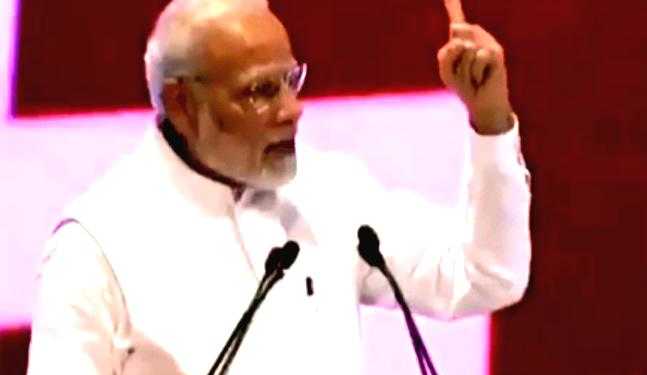India is among the largest fossil fuel importers in the world. The petroleum imports make a significant impact on the import bills and foreign exchange outflow of the country. If the renewable energy and bio-fuel energy could replace substantial amount of fossil fuel then we can save large chunk of foreign exchanges. The bio-fuel, which is derived immediately from living matter unlike fossil fuel which is produced by geological process, will solve the problem for farmers as well as the oil import related issues. Speaking at an event to mark the World Biofuel Day which is observed on 10th August across the globe, Modi said, “The country has set its course to produce nearly 450 crore litres of ethanol in the coming four years. Ethanol blending in petrol increased from 38 crore liters in the ethanol supply year 2013-2014, to an estimated 141 crore liters in the ethanol supply year 2017-2018. The Government had also approved the National Policy on Biofuel in June 2018.” The country imported crude oil worth 87.725 billion dollars or 5.65 lakh crore rupess in FY 18 with most of the supply coming from gulf countries like United Arab Emirates, Iran, Iraq, Qatar, and Saudi Arabia. “India has saved forex worth ₹ 4,000 crore in the last financial year due to savings from ethanol blending programme. The government aims to increase these savings to ₹ 12,000 crore per annum over the next four years,” said Modi.
In its National Bio-fuel Policy 2018, the government is trying to solve the issue of sugarcane farmer’s excessive produce. In a season when farmers have good produce, price crashes to a new low due to excessive supply, the reason for this being limited availability of warehousing and transportation facilities in the country. Now with excessive produce going to ethanol refineries farmers do not have to sell their produce at throw-away prices. The government is also expanding the base resource beyond sugar molasses, and according to the new policy, sugar-containing crops like beet, sorghum, corn and cassava, and damaged grains unfit for human consumption, such as rotten potato, wheat and broken rice would also be considered for ethanol production. The government has also put aside Rs. 5000 crore for establishing second generation refineries. “We also aim for an earning of ₹ 20,000 crore solely through conversion of sugarcane to ethanol. This amount will aid the income of farmers. The Centre also wants more agrarian produce such as potatoes and agrarian waste to be converted into ethanol and we are working towards the same,” said PM Modi.
Second generation refineries will also solve the problem of agricultural residues because they can be processed into bio-fuel. Furthermore, burning of agricultural residues in states like Haryana, Punjab causes smoke related problems in Delhi where people have to wear masks during the winters due to severe smog. The increased capacity in bio-fuel production will lead to a cleaner environment in the country, since we are facing dangerous levels of air pollution. India, the biggest emitter of greenhouse gases after the US and China, plans to reduce its carbon footprint by 33-35% from its 2005 levels by 2030, as part of its commitments to the United Nations Framework Convention on Climate Change adopted by 195 countries in Paris in 2015. “Bio-fuels can help reduce import dependency on crude oil. They can contribute to a cleaner environment, generate additional income for farmers & rural employment. Bio-fuels have synergies with various government initiatives, including enhancing farmers’ incomes, and Swachh Bharat,” PM added.
The state-run oil marketing companies aims to invest Rs 10,000 crore for setting up 12 second-generation bio refineries. This policy will help India in achieving its goal of self sufficiency in the field of energy and will save tax payers’ money spent on oil imports. The money could be used to provide public services like health and education in the country, as well as invest in poorer nations to solidify India’s diplomatic outreach much in the manner China does in Africa today.
























